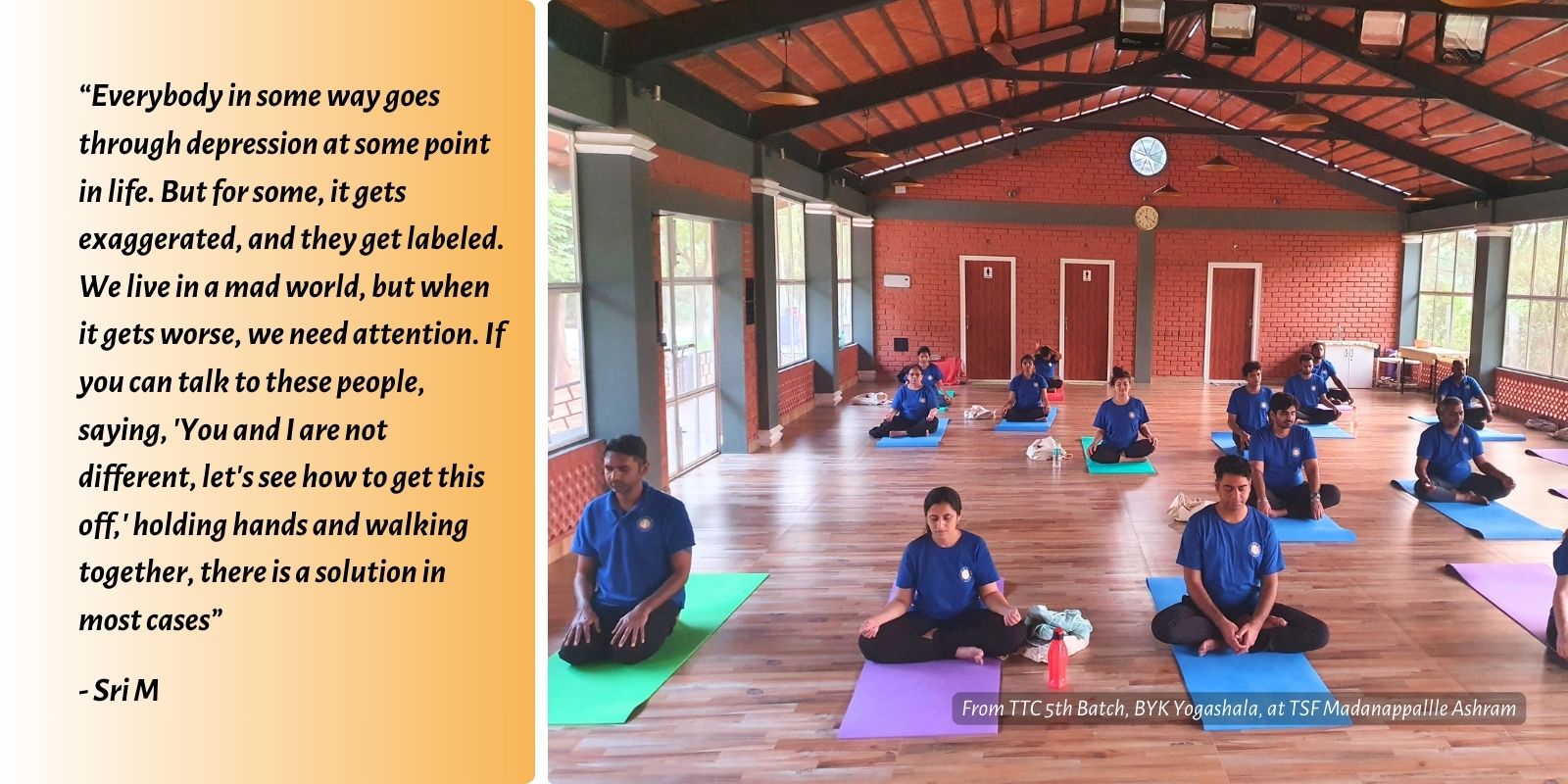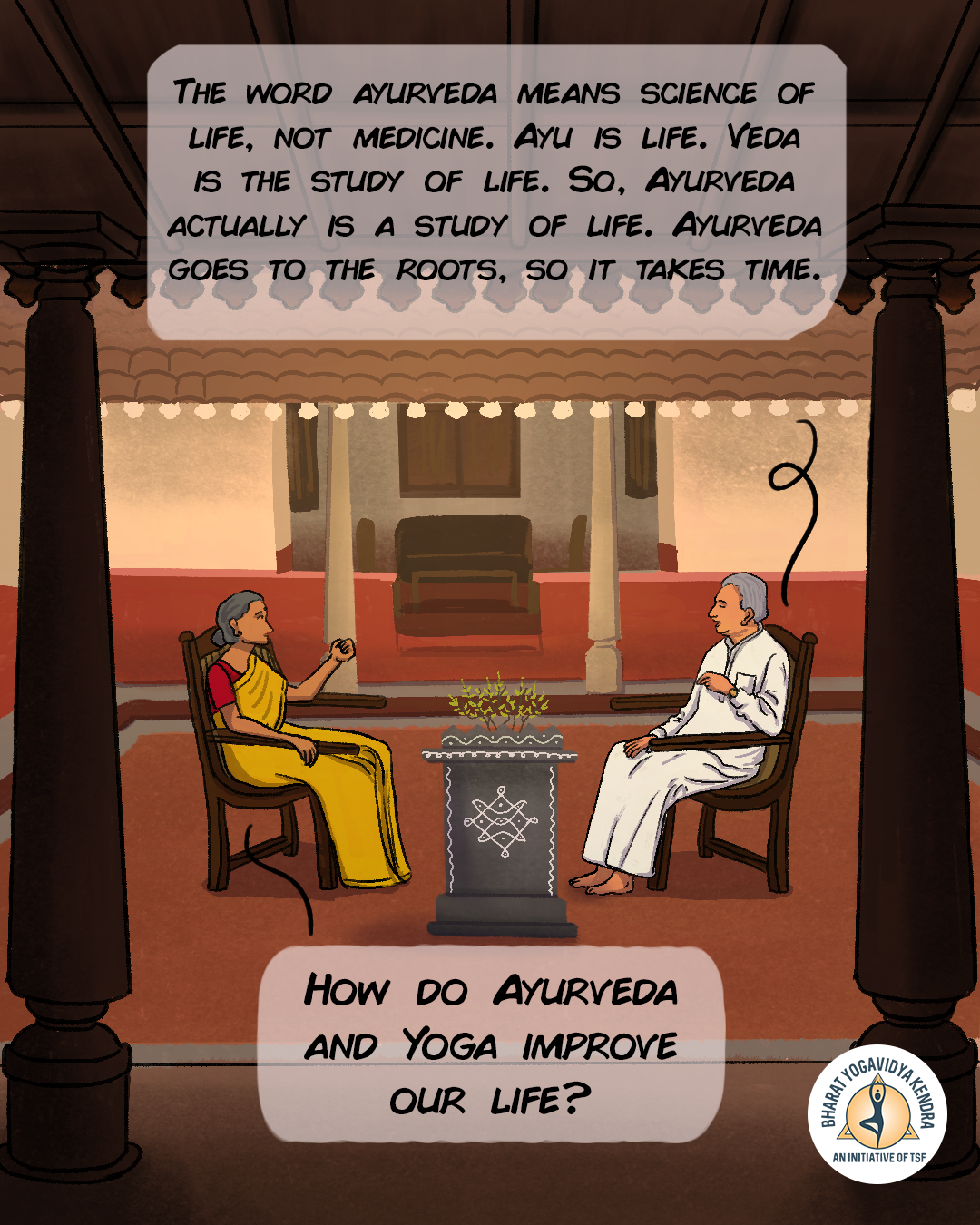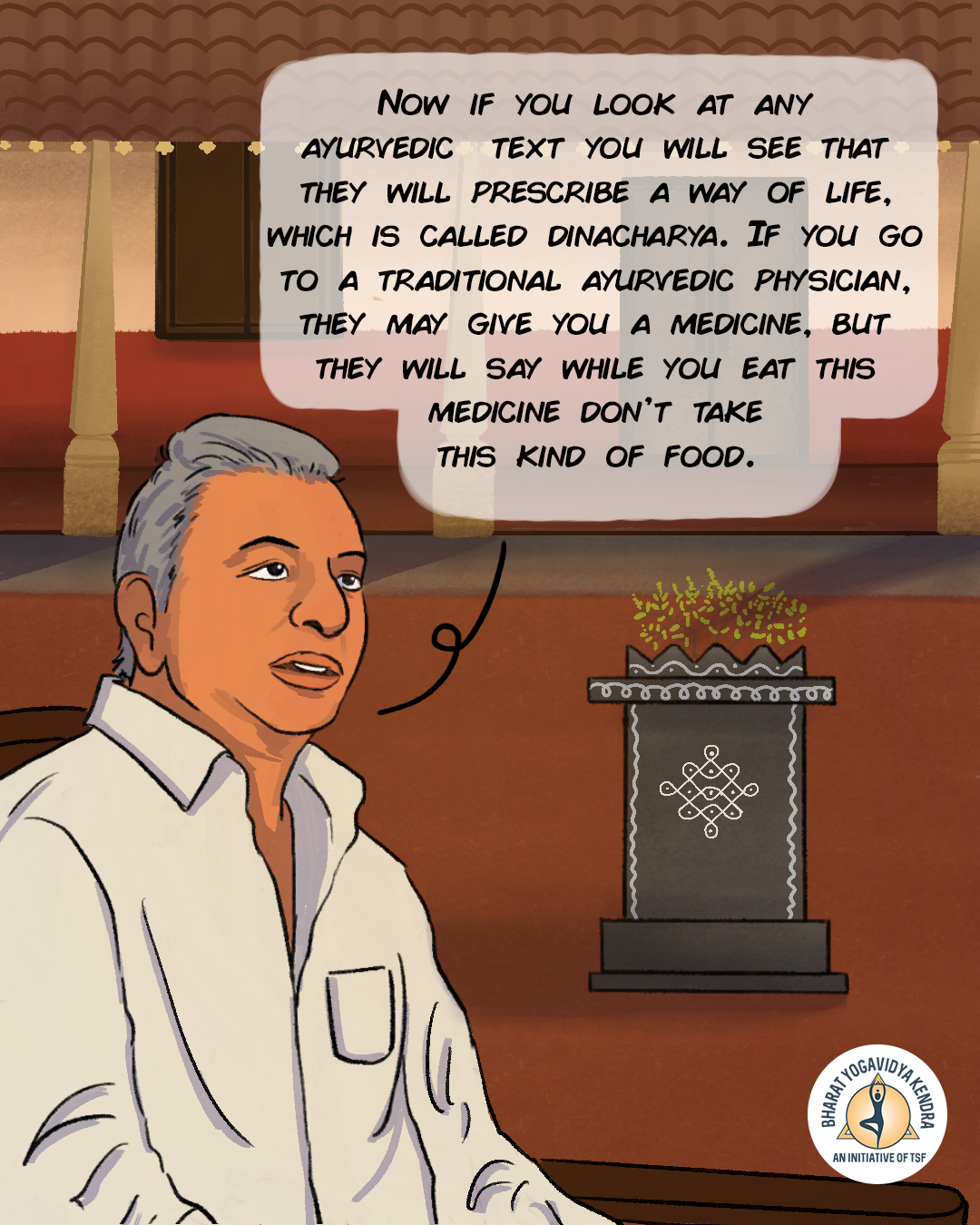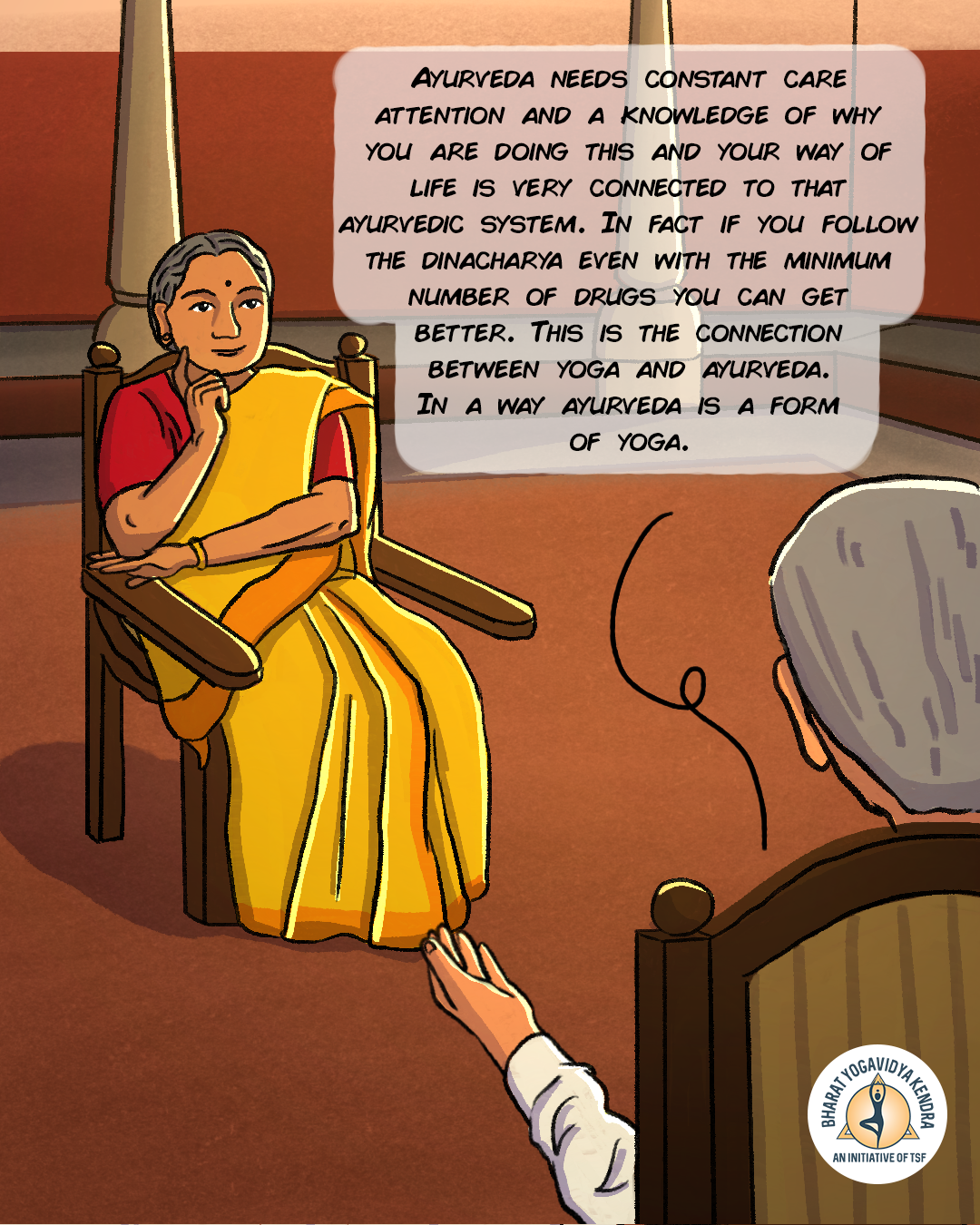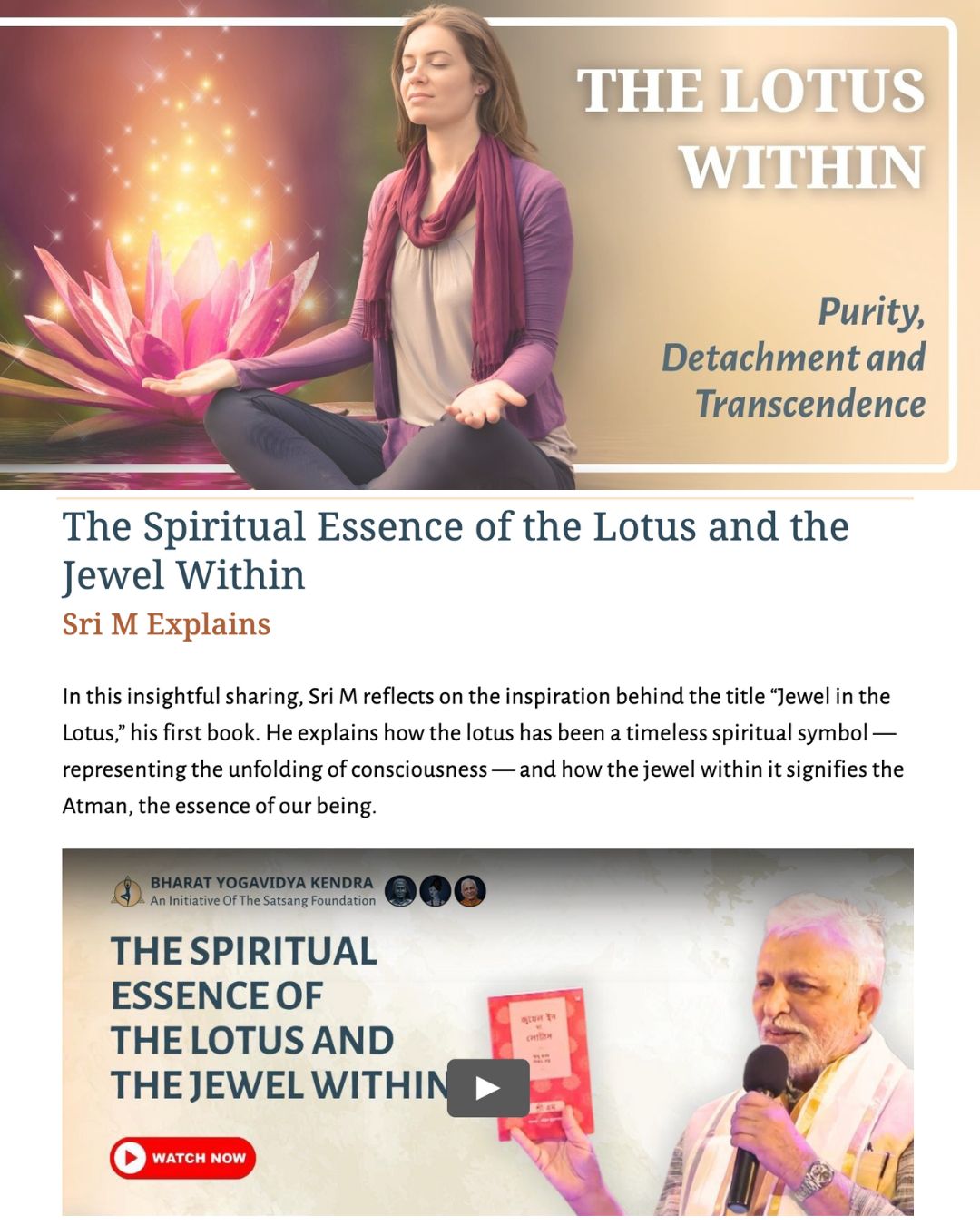Mental Health and Yoga:
Yoga’s Role in Mental Wellness
Dear Readers,
In today’s fast-paced world, mental health challenges are at an all-time high. Depression, anxiety, and stress have become common struggles, affecting people across age groups. This month, we bring you insights on mental health from a Yogic perspective.
Yoga is a holistic practice that nurtures the mind and body together. From pranayama to dhyana, yoga offers time-tested tools that help create a stable, calm mind amidst life’s turbulence. Mental health doesn’t always get the attention it deserves, and when it does, the solutions offered often feel limited. This is where the ancient wisdom of yoga steps in.
Studies now show that simple, consistent yoga practices can not only help manage stress but also act as preventive care. And when paired with modern therapeutic support, yoga can enhance recovery for those facing deeper psychological challenges. In this edition, we’ll guide you through practical yoga techniques aimed at maintaining mental harmony. From breathing exercises to gentle asanas designed to calm the mind, this issue is filled with insights that anyone can adopt. You’ll also hear personal stories of how yoga has transformed mental resilience for people from all walks of life.
Incorporating mental wellness practices alongside physical and spiritual practices brings a holistic balance to life. It’s not just about getting through the day but thriving in it with peace of mind and heart.
We hope this issue serves as a gentle reminder that your mental health is as important as your physical well-being—and yoga can help you nurture both.
With warm regards,
The Yogavidya Team
An End to Mental Illness: Hathapradipika on Pratyahara & Dharana
Sri M Explains
Talk with M
BLOG POST
The Holistic Power of Yoga: A Path to Mental Health
Mental health issues, including depression and anxiety, now affect 10% of the global population, with teenagers facing an alarming rise in these conditions. In a world where traditional therapies sometimes fall short, could yoga offer a solution? This article delves into how ancient yogic wisdom addresses the root causes of mental disturbances—known as “Vrittis”—through practices like Pratyahara (sense withdrawal) and Dharana (concentration). These disturbances, fueled by “Kleshas” such as ignorance, egoism, and attachment, are considered the foundation of mental suffering.
Yoga is not just about physical flexibility—it is a structured science that calms the mind, restores emotional balance, and, as the article notes, provides “a perfect solution for most mental illnesses—especially depression.”
Practices like Yoga Nidra and Pranayama have been proven to promote relaxation, balance brain chemistry, and reduce stress.
By integrating yoga into your daily routine, you can strengthen mental resilience, reduce anxiety, and find long-term peace. Ready to explore how ancient techniques can offer modern mental health solutions? Read on to discover how yoga’s powerful, time-tested practices can transform your mental well-being.
BOOK REVIEW
Yoga & Mental Health & Beyond
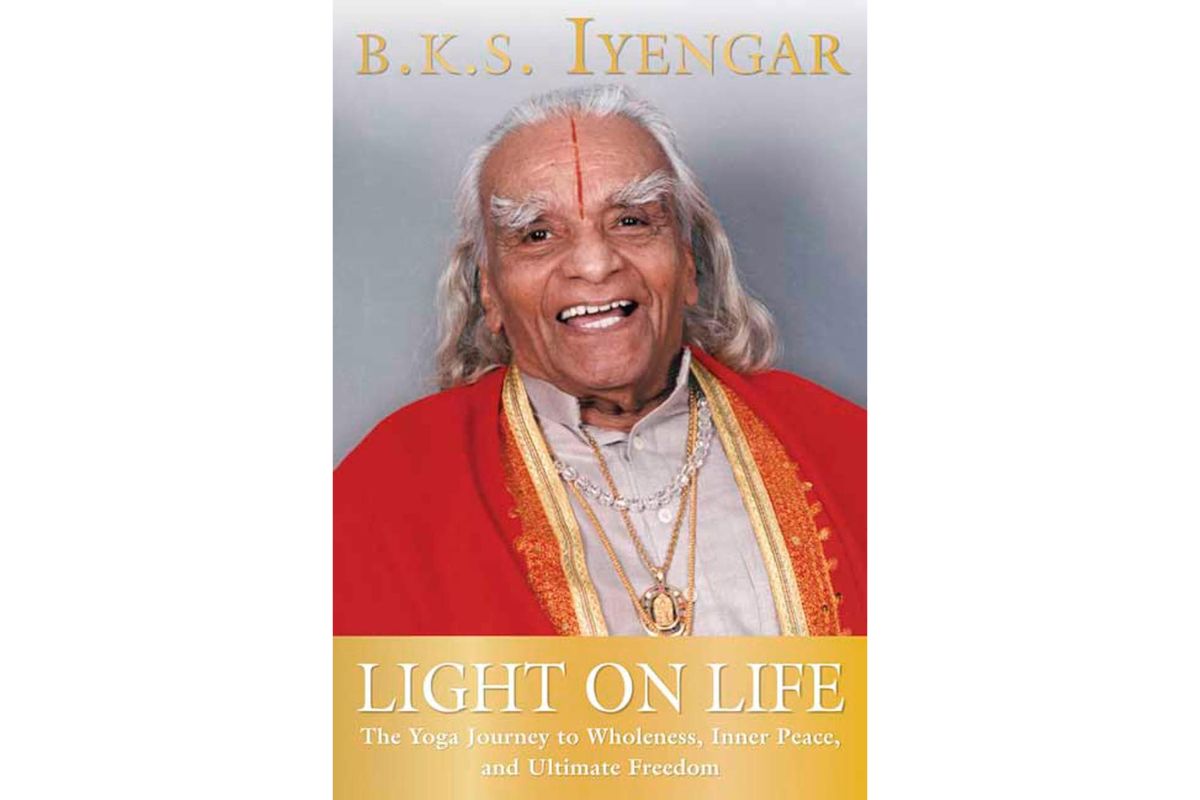
This book is a transformative guide for anyone seeking to harmonise mind and body through yoga. The book delves into the profound ways yoga can impact mental health, offering practical strategies that blend ancient wisdom with contemporary psychological insights.
Mr. R.S. Bhogal, with clarity and depth, navigates readers through the intricate relationship between yoga practices and mental well-being. The text is replete with accessible exercises, meditation techniques, and philosophical reflections designed to foster resilience and emotional balance. His approach is not just instructional but deeply empathetic, making the complex interplay of mental health and yoga approachable and actionable.
This book stands out for its blend of scientific rigour and spiritual insight, offering both theoretical context and practical tools. It’s a valuable resource for yoga practitioners, mental health professionals, and anyone interested in a holistic approach to well-being. “Yoga & Mental Health & Beyond” is a beacon for those looking to deepen their practice and achieve
greater mental harmony.
YOGA GUIDE
Aakash Mudra
Hasta Mudras or hand gestures balance, promote, or redirect the flow of prana and subtle energy to influence the sense-perception, sense of being, and state of wellness. Everything in the universe is a permutation or combination of the five elements. Fueled by sound (vibration), they partake in the infinite cycle of creation and destruction.
Aakash Mudra is sometimes also called as Shuni Mudra. In Sanskrit, ‘aakash refers to ‘ethereal space’ or ‘open mindedness’. This practice allows us to unite the individual Consciousness with the Universal Consciousness known as Atma or the individual self feeling connected with the higher self ( Parmatma).
Benefits:
- Energy flow is regulated and controlled
- Activates the Vishuddhi Chakra
- Increases the air element
- Helps to develop intuition
Did You Know?
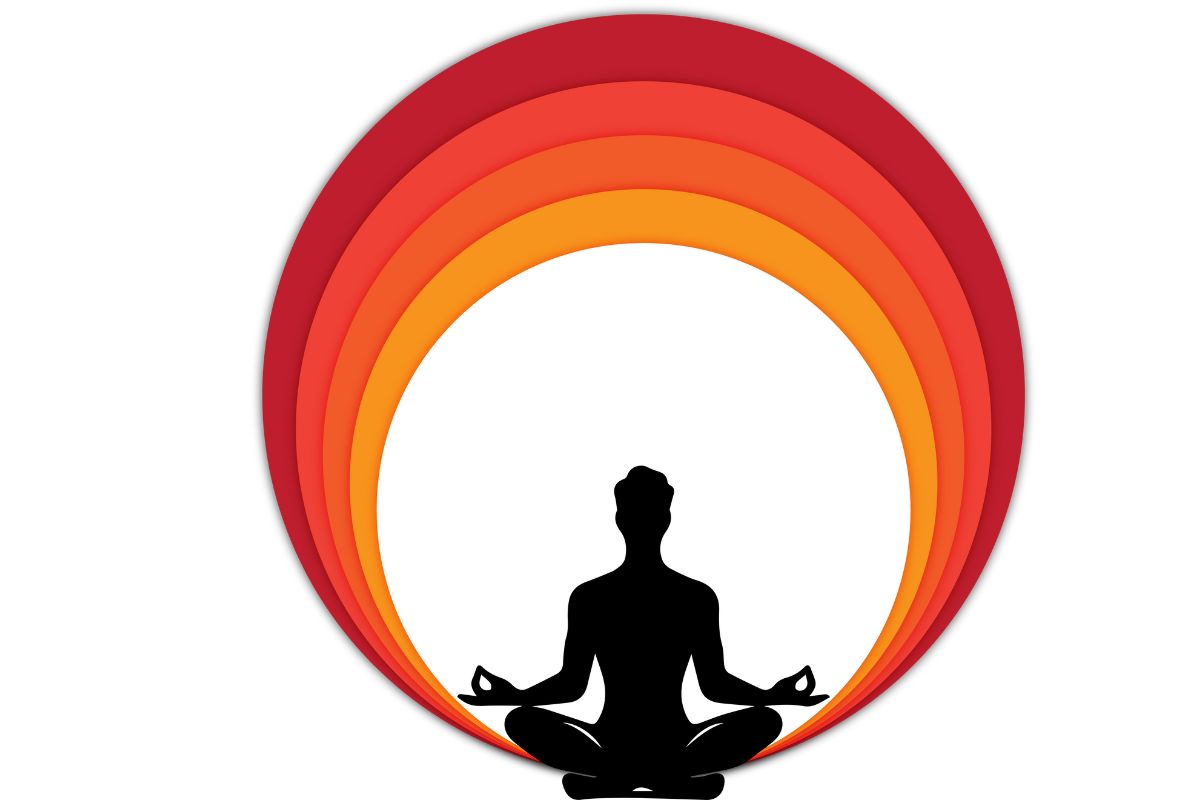
Long before the inception of modern psychology and psychiatry, ancient yogic texts have been addressing mental health and illness for thousands of years. For example, the Yoga Sutras of Patanjali (circa 400 CE) speaks about Chitta Vrittis—the disturbances of the mind—such as Avidya (ignorance) and Asmita (egoism) as the root causes of mental suffering.
Ancient yogic texts like the Hatha Yoga Pradipika (15th century CE) also address mental health through practices that focus on balancing the body and mind. The Upanishads (circa 800-200 BCE) emphasize self-inquiry (Atma Vichara) and meditation as methods to achieve mental clarity and transcend the ego, which are seen as the root of human suffering. The Mundaka Upanishad describes the mind as an instrument that, when properly controlled through meditation, leads to liberation from suffering.
Moreover, in the Sankhya Philosophy, which predates many of the texts, mental imbalance is seen as a result of misidentifying the self (Purusha) with the mind and body (Prakriti). The teachings offer introspection and meditation as tools to resolve this conflict and achieve mental peace.
Yoga Guide
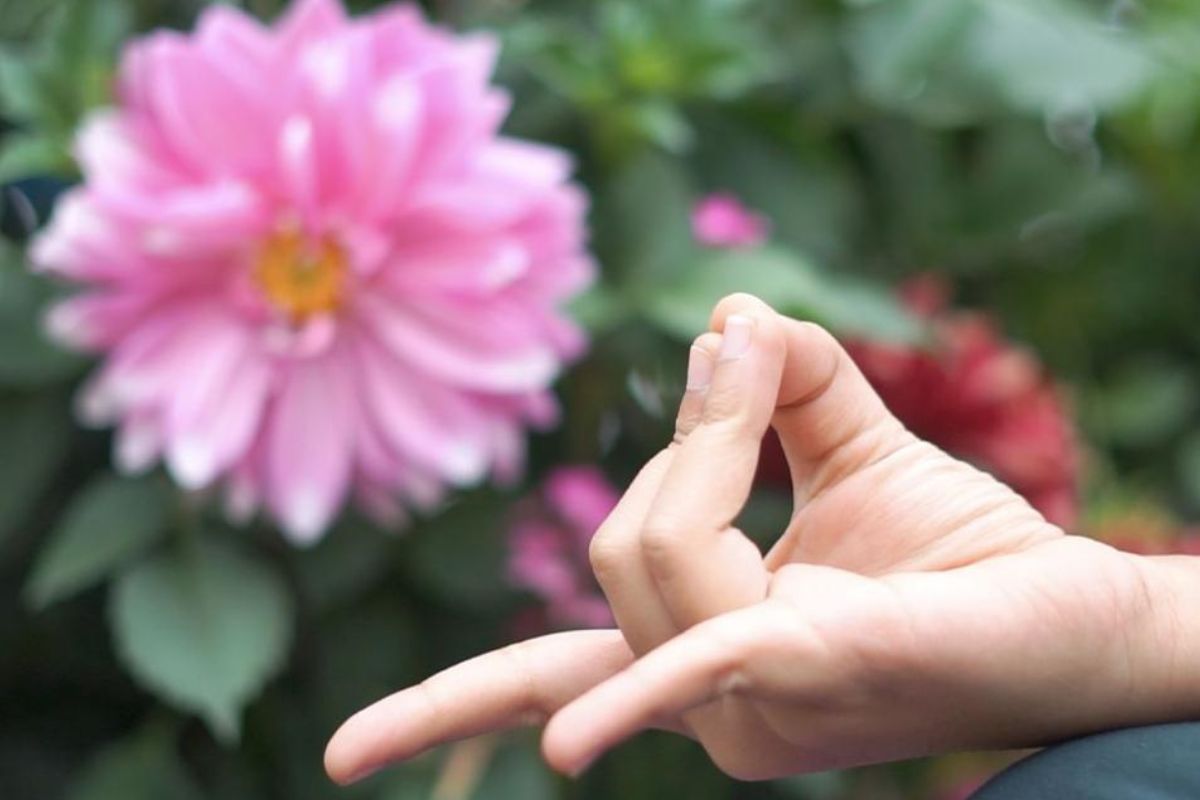
Practice Steps:
- Sit or lie down in a comfortable position in a quiet environment.
- Close your eyes and take a few deep breaths. Breathe in slowly through your nose, allowing your abdomen to rise, then exhale gently allowing your belly to sink in towards the spine. Let your breathing become natural and relaxed.
- Bring your attention to your toes. Notice any sensations or lack of sensations. Observe without judgement.
- Gradually shift your focus from your toes to your feet. Pay attention to how your feet feel. Continue this process, moving your attention slowly up through your legs, knees, and thighs. Spend a few moments on each area.
- Move your attention up to your hips, abdomen, and chest. Notice any sensations or areas of tension and allow yourself to relax.
- Shift your attention to your fingers and hands, moving up through your arms and shoulders.
- Finally, bring your awareness to your neck, face, and head. Notice how your jaw feels, the sensation in your forehead, and the top of your head.
- Focus on your entire body as a whole. Notice the overall sense of relaxation and any changes in how you feel. Gradually bring your attention back to your breathing. When you’re ready, gently open your eyes.
The body scan technique is a powerful method for achieving deep relaxation and increasing awareness of physical sensations. By bringing awareness and acknowledgment to whatever you feel or sense in the body, the body scan can be very helpful in working with stress, anxiety, and physical pain.
Benefits:
- Activates the parasympathetic nervous system, which helps reduce stress hormones like cortisol and promotes a sense of calm and relaxation.
- Enhance mental clarity and focus. It provides a break from the constant mental chatter, leading to improved concentration.
- The deep relaxation can lead to emotional release, allowing for the processing and letting go of emotional stress and tension.
Contraindications:
Incase of back injury or discomfort lie in a reclined pose using the support of a bolster and cushion below the head if you find it difficult to lie down on your back for long.
YOGA RESOURCE
Nadi Shodhana Pranayama
Nadi Shodhana (alternate nostril breathing) is a powerful yogic technique that balances the nervous system. Studies have shown that this practice increases oxygen levels in the brain, enhances parasympathetic activity, and decreases sympathetic responses. Research has also demonstrated that Nadi Shodhana lowers blood pressure, improves heart rate variability, and reduces cortisol levels, which are all linked to reduced anxiety and better emotional regulation. This simple practice support mental health and foster emotional resilience.
AYURVEDA WISDOM
Plant Power for Mental Wellbeing: Adaptogens and Nootropic
Modern humans are constantly striving to optimize their well-being. From energy drinks to focus-enhancing supplements, many people are turning to a variety of products to help boost their mental and physical performance.
This brings us to the fascinating world of adaptogens and nootropics. Adaptogens are natural substances that help the body adapt to stress and restore balance, while nootropics are cognitive enhancers that improve brain function, memory, and focus. The growing interest in these substances has led many to explore plant-based options, which are safer and more sustainable than synthetic supplements.
But here’s the thing: Ayurveda spoke of the power of adaptogens and nootropics thousands of years ago. Ayurvedic adaptogens like Ashwagandha, Shatavari, Tulsi, Licorice Root etc. help manage stress and build resilience. Adaptogens work by regulating the body’s stress response, supporting the adrenal system, and balancing hormones like cortisol.
While nootropics like Brahmi, Gotu Kola, Shankhpushpi, Vacha, Lion’s Mane Mushroom, Ginkgo Biloba enhance memory and concentration. These natural remedies work in harmony with the body, offering long-term mental and emotional well-being. Nootropics support brain health by increasing blood flow, enhancing neurotransmitter function, or protecting brain cells from oxidative stress.
Always consult a Ayurvedic practitioner before integrating these powerful herbs into your routine to ensure customized, safe and effective use.
SPOTLIGHT OF THE MONTH
BYK 2025 – Celebrating 5 Years of Yoga & Growth
As we mark our 5th birthday, Bharat Yogavidya Kendra (BYK) is grateful to announce an inspiring lineup of offerings for 2025. Rooted in tradition yet attuned to modern life, we bring you tools to deepen your yoga practice and personal growth.
- Nitya Anushtanā: Join live, interactive yoga classes every month via Zoom, led by our expert teachers in IST timings – your regular dose of authentic practice.
- Ritu Sādhanā: Align with nature’s rhythm through seasonal practices, carefully curated and taught live to harmonize body and mind with the changing seasons.
- Svādhyāya Pātha: Learn anytime, anywhere with pre-recorded yoga courses designed for self-paced learning – perfect for busy schedules.
- Adhyāpaka Praveśa: Step into the role of a teacher with our comprehensive, certified yoga teacher training programs, accredited by AYUSH, IYA, and YA.
- Viśesha Sangraha: Discover enriching yoga experiences to expand your practice, build connections, and foster deeper personal growth.
- Āśrama Anubhava: Immerse yourself in transformative, in-person yoga retreats at our serene Madanapalle ashram, open to all ages and skill levels.
This year, as you craft your new year resolutions and sankalpa, BYK stands with you every step of the way. Stay tuned for detailed course offerings under each category. Together, let’s embrace Yoga for Now, for life, and for a brighter you in 2025.
Upcoming Courses & Retreats
VISHNU SAHASRANAMAM
Mantra Chanting Class
Dates: 1st Jan – 28th Feb
Days: Wed & Fri
Total: 18 sessions
Time: 7:00 – 8:00 PM IST
Fee: INR 5,000 | US$ 89
Mode: Online Via Zoom
Vishnu Sahasranamam is a revered hymn that lists the 1,000 names of Lord Vishnu, who is considered the preserver of the universe. The hymn appears in the Mahabharata as it was recited by Bhishma to Yudhishthira while Bhishma lay on the bed of arrows, imparting wisdom.
Learn to chant with the correct Sanskrit pronounciation & metre.
PRANAYAMA AND MEDITATION
Regular Course
Dates: 7th – 30th Jan
Days: Every Tue & Thurs
Total: 8 session
Time: 6:30 – 7:30 AM IST
Fee: INR 1,000 | US$ 32
Mode: Online Via Zoom
Upon popular request, we are introducing a regular pranayama and meditation course to help you build a consistent practice while also introducing you to the science of Pranayama, and practices that balance mind, body, and breath. One hour twice a week is all it take to a healthier, happier you!
Join to master the art of prana vidya & deep meditation.
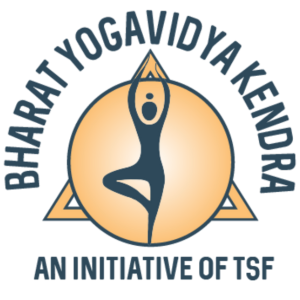
Thank you for reading
In this issue of Yogavidya, we have:
- Mental Health and Yoga:
Yoga’s Role in Mental Wellness - An End to Mental Illness: Hathapradipika on Pratyahara & Dharana
- Talk with M
- The Holistic Power of Yoga: A Path to Mental Health
- Yoga & Mental Health & Beyond
- Aakash Mudra
- Did You Know?
- Nadi Shodhana Pranayama
- Plant Power for Mental Wellbeing: Adaptogens and Nootropic
- Yogavidya | BYK Monthly Newsletter

